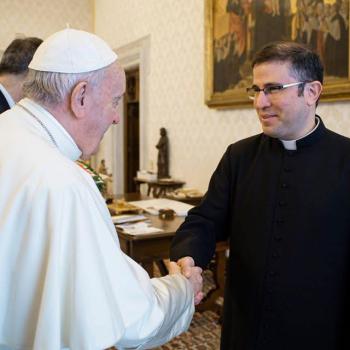In 2012, in the absence of congressional action to provide relief to about 800,000 young people who were brought into the United States as infants or children by their parents without authorization, the Department of Homeland Security announced that those who entered the United States as children and met certain requirements could register with the government and request consideration of deferred action for two years.
This began the DACA program – Deferred Action for Childhood Arrivals. DACA provides no legal status to its recipients, but does provide them with a temporary reprieve from deportation and allows them to work in the United States. DACA has allowed those under thirty-one in 2012 who entered the country before their sixteenth birthday, who had not left the United States for the previous five years, who were in school, graduated high school or were a U.S. Armed Forces veteran, and had no criminal record, to apply for a renewable two-year period where they would not get deported. After completing paperwork, gathering evidence and paying $465, young men and women celebrated that they did not have to be afraid. They could work legally, pay taxes and get a driver’s license. The hope of these young men and women has been to come out of the shadows to become contributing members of society. Ideally, their hope is that Congress will enact immigration reform to permanently adjust their status.
Since 2012, about 800,000 young men and women have been recipients of DACA. They took a risk by identifying themselves to immigration hoping that DACA would finally give them a voice in the only country they have called home. The recipients of DACA consider themselves American, speak English and feel at home in the United States. Today, the whole program is as risk as the current administration has promised to repeal it. In the next few days a final decision will be made.
The DACA recipients I know are stellar citizens, studying and working hard not only for their personal future but for the future of our country. Some have full scholarships at Ivy League schools, others are studying and working hard, others are community and parish leaders. An individualized assessment has already been done by our government on each of these recipients, and they have been found to be contributing members of society. Why now repeal DACA exposing them to deportation? These are not the immigrants we want to deport.
About one month ago the Catholic Bishops of the United States once again expressed their support for DACA. They stressed that DACA recipients “are contributors to our economy, veterans of our military, academic standouts in our universities, and leaders in our parishes. These young people entered the United States as children and know America as their only home.” [Click here to read statement]
From its inception in 2012, all parties have recognized that DACA is not a permanent solution. If the President chooses to end it, it will be imperative for Congress to find a legislative solution to address the status of these 800,000 men and women. That should have happened from the start. For many, DACA is just a political issue or a headline, but for 800,000 men and women, DACA will mark the course of their future.
Archbishop Jose Gomez of Los Angles said some years ago that, “America has always been a nation of justice and law. But as Americans we have also always been a people of generosity, mercy and forgiveness.” When considering DACA, I challenge all to lean on generosity, mercy and forgiveness.
Picture taken from Wikipedia Commons














